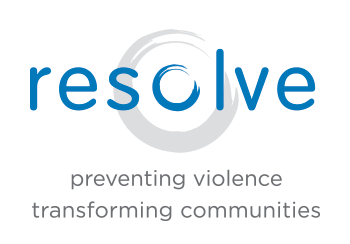Today, IMPACT is participating in One Billion Rising, a global movement to speak out against violence against women. Below are the statements Alena is making outside and inside the Capitol.
What a powerful day to be speaking with so many others across the world about violence against women!
The reality is that prevention efforts aimed at keeping women and others who experience violence safe is most frequently packaged in language that blames victims and perpetuates patriarchy and other systems of oppression. Told to not drink, not wear that skirt, not go out at night, to that neighborhood – as if our actions alone can prevent sexual assault.
Individual action might work if violence were the only issue. If violence against women were the only issue, maybe-
However, at IMPACT, we find it important to call out violence for what it is: a tool of oppression. When we recognize violence as a tool of oppression, that means that we MUST come together as a community. Individual avoidance or action is not enough.
It means that we must recognize violence against women is not the only issue that needs addressing. We must address racism, classism, xenophobia, ableism, homophobia, transphobia… all of the factors that we know put individuals in our community at greater risk for violence. It means we must acknowledge that patriarchy hurts not just women, but also our boys and men who are victimized at home or hurt because how they act or dress does not fit into stereotypes of traditional masculinity.
I’m proud to be a part of a community that has so many quality agencies working on these issues. When people need to reach out about sexual violence and/or domestic violence, Solace and Esperanza are there. Increasingly, medical teams throughout the city know how to respond to and compassionately invite disclosure about domestic violence. At IMPACT, we work to provide strategies to both prevent violence in our communities and help survivors heal and feel safer in their daily lives and relationships.
All of these are ways to develop individual and community safety and resilience. Meanwhile, if we are to really develop safer communities, we must consider issues from immigration reform to access to public bathrooms for transgender people and others. We need to investigate every issue that arises and consider: does it have implications for whether our communities are safer?
________________________________________
We need a solution to violence that does not sell us the prospect of safety packaged in language that blames victims and perpetuates systems of oppression.
We are told to stand up for ourselves, yet many of us already know the risk inherent in that “solution.”
Instead of being supported by the judicial system like George Zimmerman was when he felt needlessly threatened by a young black boy, women, people of color and LGBT people regularly go to prison for defending themselves when faced with violence. Whether it is Marissa Alexander, a young black mother who stopped her abusive ex-husband from possibly killing her; or CeCe McDonald, a young transgender woman who defended herself when attacked in a transphobic and racist hate crime, people across the nation go to prison for “standing up for themselves.”
As long as our prevention efforts and judicial systems use bias as the basis for advice and decisions, we will not end violence and we will not achieve justice.
